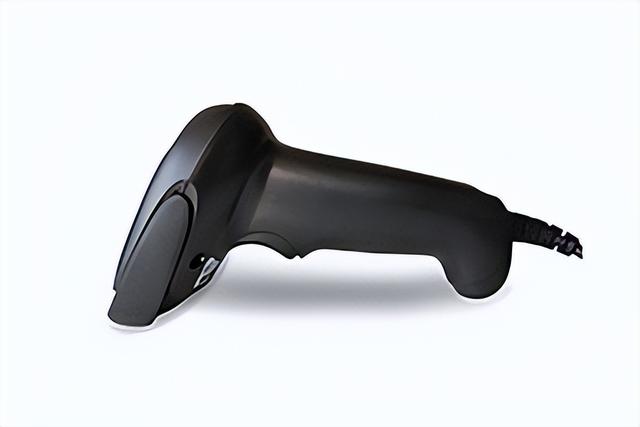介词复习及介词习语复习(介词复习及介词习语复习)
介词复习及介词习语复习,今天小编就来聊一聊关于介词复习及介词习语复习?接下来我们就一起去研究一下吧!

介词复习及介词习语复习
介词复习及介词习语复习
一. 意思较为复杂的介词
1. About:
①关于:
I knownothing about the matter.
②围绕、环绕:
She hada gold chain about her neck.
③在……的附近;在……周围:
Thestreets about the castle are full of places of historic interest.
④正要……; 刚要……(后面接不定式):
Iwas about to speak when my companion drew my attention tosomething that was happening in the far corner of the room.
2. Against:
①反对:
Myfather was against giving votes to women.
Areyou for or against the suggestion?
②反抗、抵抗、对抗
Thewar against Napoleon; the fight against disease; to riseagainstoppressor.
③靠着;倚着:
Hestood with his back against the door.
Don’tlean against the wall.
④撞着;碰着:
Shestruck her head against the branch of a tree.
10. at:
①表示地点时,指最为具体、明确的地点。
Thepost office is at the corner of the street.
Iwill meet you at the railway station.
②表示时间时,指具体的时刻(几点几分)。
Theconcert starts at half past seven.
下列情况应该死记:
atChristmas; atdawn; at sunset; at noon; at night
③表示事物或人所处的状态。
Thetwo tribes were constantly at war.
Inever feel at ease in his company.
④表示原因。
Thewhole nation was in deep sorrow at the news.
Ihave called to see you at the request of a friend.
⑤表示“以……的速度”或“以……的价格”。
Thecar raced through the countryside at sixty miles an hour.
Eggsare sold at three shillings a dozen.
11. by:
①用以引出动作的发出者,汉语译为“被”、“受到”、“由”。
Hewas killed by a piece of falling rock.
②表示动作的方式或手段,汉语译为“通过”。
Passengersmust cross the railway line by the bridge.
Heearned a living by driving a taxi.
③表示位置时,意思是“在……的旁边”。
Ona cold evening it is pleasant to sit by the fire.
④表示时间时,意思是“到……时(为止)”。
Ihave promised to have the work finished by the end of this week.
⑤表示买卖东西时用以计算的数或量;支付报酬时用以计算的时间。
Milkis sold by the pint, butter by the pound, and eggs bythe dozen.
Mostworkmen are paid by the week.
⑥ by 反身代词的意思是“独自”(没有人在一起或没有人帮忙)。
Shelives by herself in a small cottage in the country.
5. from:
①表示出发或行为起始的地点以及事物的来源,汉语译为“从”;“来自”。
Weset sail from Liverpool.
Teacomes from India and China.
Hejumped from a five-storey window into the street below.
②表示原因(通常用于贬义)
Allher life she suffered from headaches.
Thetwo explorers died from exposure to the cold.
③表示“防止”或“避免”。
Hesaved the child from drowning.
Weput on our raincoat to protect us from the rain.
动词keep、prevent、stop后搭配from都属于这种用法。
④表示“差异”或“对比”。
Wecould not distinguish one from the other.
Wefound a village very much changed from what it used to be.
单词different、tell (分辨,区分) 后搭配的from 均属这种用法。
6. For:
①表示目的。
Georgeis saving up for a camera.
Hewent into the shop for some cigarettes.
②表示原因,汉语常译为“因为”、“由于”。
Youcan’t see the wood for the trees.
Hewas given a title for services to his country.
③表示“赞成”、“同意”。
Areyou for the suggestion, or against it?
I’mall for anything that will make our work easier.
④表示“对……来说”、“考虑到……”。
Theweather is quite warm for November.
Heis tall for a boy of eight.
⑤表示动作持续的时间。
Lastweek I stayed in Beijing for three days.
⑥表示“交换”。
Ilet him have my watch for his camera.
Shebought it for five pounds.
⑦用以表示不定式的逻辑主语。
It is not good for children to have too muchmoney.
7. in:
①表示地点、范围,汉语译为“在……”; “在……中(内、里)。
Sheis a nurse and is working now in a hospital.
Doyou like the bird in the cage?
②表示时间时的用法:(在一段时间范围之内)
inthe morning ( afternoon; evening)
inspring (summer; autumn, winter)
inJanuary ( February, March……)
in1919
③相当于汉语的“用”、“以”之类的意思。
Please answer my questions inEnglish.
Only in this way can youremember new words easily.
④表示“进”、“入”一类的意思,但主要强调状态。
He put his hand in hispocket.
⑤表示衣饰等,“穿着”、“戴着”。
Doyou know the woman in white?
He is always dressed inuniform.
⑥表示“在……方面”、“在 ……上”。
I think he will have some troubles infinishing the task.
Mr. Green spend o lot of money inplaying computer games.
8. of:
①表示所属关系,汉语常译为“的”。
The soldiers of the Queen;
the surface of the road
the cover of the book
②表示“在……中”。
Threeof them;
halfof the money collected
③ 表示……的数量或种类。
Apiece of chalk
asheet of paper
④表示同位关系。
Thecity of Tianjin
thefact of my seeing him
⑤表示材料、成分等。
Adress of silk
Whatis the table made of?
Thebook consists of several chapters.
⑥表示“解除”、“分离”、“剥夺”。
Curesb of a disease;
robsb of his money
9. on:
①表示“接触”,汉语的意思是“在 ……上”。
Thebooks on the table;
havea hat on his head;
②表示时间时,专指确定的某一时间、日期、机会。
Onthe 1st of October;
onthe morning of Mat the first;
③表示露天的地点。
Onthe ground;
onthe farm
④ “有关”、“关于”
He will give them a speech oninternational affairs.
⑤表示“是……的成员”、“在……任职”。
Heis on the committee.
Iwas on the football team of our school when I was a student.
⑥表示根据、基础、条件、理由等,汉语常译为“靠、借、由于”。
下列短语都属于这种用法:
bebased on; depend on; buy sth on credit
oncondition that; live onrice
⑦表示动作或状态在进行中,汉语可译为“在…… 中”。
On holiday; on duty; on sale; on business;
on fire;
10. over:
①表示垂直在上,但有一定的距离而不接触。汉语译为“在……上”。
Hold an umbrella over one’shead;
The lamp hung over the table.
②表示时间时,意思是“在……期间”。
Are you staying in London overChristmas.
Over the centuries
③表示“越过”。
Climb over a wall; our friends over thesea;
She spoke to me over hershoulder.
④ “在……对面“
They live over the street.
⑤表示数量上“超过”或“在……以上”。
Over eight years ago;
He spoke for over an hour.
⑥ 表示“遍及”。
All over the body (浑身); travel all over the world;
Snow is falling over north of England.
11. with:
①表示一起、伴同等,汉语常译为“同”、“和”、“一起”、“跟”。
Combine theory withpractice; co-operate withothers;
learn English with Pro.Jones; be together withhim;
②表示伴随发生,汉语常译为“随着”。
Change with seasons; increase with years;
With these words, he wentout.
③表示“有”、“带有”。
A girl with golden hair; a room with furniture;
China is a large country witha long history.
④表示所使用的工具、手段,汉语常译为“用”。
Cut with a knife; take it with both hands
I have no money to buy it with.
⑤表示原因、理由,汉语常译为“因为”、“由于”。
Be silent with shame; be troubled with disease;
I can’t go out with all thesedishes to wash.
⑥用于表示情感、情绪的形容词之后,表示“关于、就、对”。
Be angry with sb. ; be satisfied with ;
be patient with;
⑦后接复合宾语,用以说明附带情况或交代细节。
A woman with a child in herarms;
read with a pipe in one’smouth;
speak with one’s tears inone’s eyes;
二.意思比较单纯的介词:
1.above:
①表示位置高于(=higher than ),汉语译为“在……上面”。
500meters above the sea level;
The sunrose above the horizon.
② (价值) 甚于、胜过(= more than)
We lovetruth above everything else.
12. across:
①横越;横过
run acrossthe street; sail acrossthe Pacific;
②交叉
The twolines pass across each other at the right angles.
3.among:
(三者) 在……之中;在……中间
avillage among the hills;
Shanghaiis among the largest cities in the world.
4.beyond:
①在……的那边;在……以外
amile beyond the town’
Isyour house beyond the river or on this side of it?
②(时间)过了……;比……晚
beyondnine o’clock;
Don’tstay out beyond midnight.
③ 超出(范围、限度);处于……之外
Thetask is beyond my strength.
Thebook is beyond me.
5.between:
(两者)在……之间;在……(的)中间
Choose between the two.
A railway between the two cities; love between mother and child
6. beside:
在……的旁边
Grassgrow beside the fence.
Comeand sit beside me.
7. behind:
①表示位置“在……的后面”、“在……的背后”。
Heleft nothing behind him.
Walkclose behind me.
Tomcame out from behind the door.
②底于、次于、不如
behindother boys of his age;
bebehind the needs of the objective situation;
8. besides:
除……之外,还有……
I havea few friends besides you.
Therewere five others present at the meeting besides him.
9. concerning:
关于
Please inform me concerningthis matter.
10. down:
①向下
rundown the hill;
Herhair was hanging down her back.
②沿着
Godown this street and turn left.
Hewas walking down the road.
11. during:
在……期间
duringthat period; during therevolutionary war;
The sungives us the light during the day.
The boyplayed during the afternoon.
12. except:
①除……之外
Weall succeed except him.
Wego to school every day except Sunday.
②短语exceptfor 表示在整体肯定的基础上,在细节上加以修整。
Theroad was empty except for a few cars.
Yourcomposition is very good except for a few spelling mistakes.
13. into:
①表示动向,“到……里”
lookinto the box; walk intothe room;
workfar into the night; throwa letter into fire
②成为、转入
makeflour into bread; putChinese into English;
cutsomething into two;
14. near:
(空间、时间、关系等) 近;在……近旁
Myhouse is near the river.
It isconvenient living so near the station.
15. onto:
动态介词,“到….上”。
Step ontothe stage;
He jumponto the horse.
16. past:
① (指时间) “过”。
Halfpast six;
Heis past fifty.
②(指空间、地点)“过”;(从旁)“经过”。
Hehurried past me without stopping to speak.
17. regarding:
关于
He spoke to me regarding hisfuture.
18. round:
①围绕、环绕
travelround the world;
Birdsfly round and round a lighthouse.
②在……的四周
sitround the fire;
Tiethe belt round your waist.
③在各处、向四周
havea look round the shop;
Letme show you round the castle.
19. through:
①通过、穿过
Thewater flows through the pipe.
Lightcomes in through the window.
②从头至尾、自始至终
Sheread through the magazine.
Hesat through the concert although she didn’t enjoy it.
③表示方法、手段,汉语多译为“以”、“通过”。
Reachan agreement though negotiation;
Itcould be accomplished only though patient work.
④遍及、历尽
travelthrough the country;
hehas come though many hardships.
20. throughout:
贯穿、遍及
throughoutthe nineteenth century;
Itrained throughout the night.
21. under:
①表示“在……下面”、“在……底下”。
Theysheltered under un umbrella.
Thepolice suspected that the man had something under his coat.
②表示“在……控制或管辖之下”。
Eachprovince was placed under a military governor.
Hehas been under the doctor for some weeks.
③表示“比……少” 或“少于”。
No one under twenty-one canbecome a member of the club.
You will not get a house of this type underfive thousand pounds.
④表示“在…… 进行中”。
The subject is underdiscussion.
The hospital is underconstruction.
22. until:
①直到……(为止)(指时间= tothe time of)
Waituntil five o’clock.
②直到……(为止)(指地点=as faras)
Gostraight on until a large red building.
23. up:
①向上、在上
go up a hill;
②向上游、向内地
sail up the river; travel upthe country
三.介词习语:
1. Accordingto:
①依照;根据
Thework has been carried out according to your instruction.
②依……而定
Takeone to three tablets, according to the severity of the pain.
Thecharge for the hotel accommodations is from eighteen to twenty-five pounds aweek, according to the class of hotel.
2. Alongwith:
由……陪同(in the company of);和……一起(together with)
Alongwith each outfit there is a book ofinstruction.
Thepainting was bought, along with other pictures, by a wealthyAmerican collector.
3. Apartfrom:
除……以外;除了
Apartfrom a few pounds a year interest onGovernment stock, I have no private income.
Hehas no interests, apart from his work.
4. Dueto:
由于;归功于
Theaccident was due to the carelessness of the signalman.
Apower failure, due to a fault in the cable, plunged the whole towninto darkness.
5. Inaddition to:
除……之外;又;加之
Onthe first day over three hundred people visited the exhibition,inaddition to those who were present at the opening ceremony.
6. Inbetween:
inbetween 和between大致相同,不过inbetween 有“反复”或“再现”的意思。在get 后面往往用inbetween.
Thereare flowers in between the trees.
7. Inspite of:
尽管
Wehad quite an enjoyable holiday, in spite of the bad weather.
8. Insteadof:
“取代、代替”,但译成汉语时说“而不是”通常更为通顺。
Thevegetarians present were given cheese dishes instead of meat.
Wefound ourselves in Birkenhead instead of Liverpool.
9. Onaccount of:
由于、因为
Trainsfrom Newcastle may be up to twenty minutes late, on account ofrepairs to the track.
Onaccount of weather, we had to cancel the projectedouting.
13. outof:
①表示“从里面到外面”。
Shetook a box of chocolates out of her bag.
Astranger came out of the door.
②表示从表面或某种物体中突出或伸出。
Anail was sticking out of the wall.
③表示“超出”。
Out ofsight; out ofreach; out of control
out of all reason; out of memory
④表示“没有”或“不再有”。
Out ofa job; out of work; out of office
14. togetherwith:
由……随同; 陪同
TheMayor and the Mayoress were present, together with the TownClerk.
Iam sending you the letter I have received from the County Council,togetherwith a copy of my reply.
,免责声明:本文仅代表文章作者的个人观点,与本站无关。其原创性、真实性以及文中陈述文字和内容未经本站证实,对本文以及其中全部或者部分内容文字的真实性、完整性和原创性本站不作任何保证或承诺,请读者仅作参考,并自行核实相关内容。文章投诉邮箱:anhduc.ph@yahoo.com






